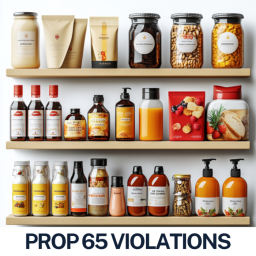
The recent $14 million seizure of vaping products from an Illinois distributor is a stark reminder: the FDA can (and does) seize products it deems unauthorized, adulterated, or misbranded. While this case involved e-cigarettes, the same enforcement power applies to foods, beverages, dietary supplements, cosmetics, and pharmaceuticals.
For companies in any regulated sector, the lesson is clear: products without federal approval or proper documentation can be taken off the market overnight.
What happened in Bensenville?
In September 2025, the U.S. Food and Drug Administration (FDA) and U.S. Marshals raided a warehouse in Bensenville, Illinois, operated by Midwest Goods Inc., also known as Midwest Distribution. They seized millions of dollars in vaping products, including flavored nicotine liquids and devices.
Regulators said many of these products were imported from overseas and lacked FDA premarket authorization. The company argued that some items had pending applications, but FDA proceeded with a civil seizure, confiscating inventory without waiting for a final decision.
This type of action underscores how quickly the FDA can act when it believes public health is at risk.
FDA authority: it’s broader than vaping
Under the Family Smoking Prevention and Tobacco Control Act, e-cigarettes are treated as tobacco products, requiring premarket authorization. But the power FDA used in this case is not unique to tobacco. It exists across product categories:
- Foods and beverages: If ingredients are not approved, mislabeled, or contaminated, FDA can seize them without advance notice.
- Dietary supplements: Products with unapproved claims or undisclosed ingredients are subject to seizure.
- Cosmetics: Items containing prohibited substances or false labeling can be pulled from distribution.
- Drugs and medical devices: Any product lacking FDA clearance or approval is at risk.
In each category, products may be classified as “adulterated” or “misbranded,” which gives FDA the authority to seize them.
Why pending applications are not enough
One overlooked aspect of the Bensenville case is that Midwest Goods claimed many of its products were under FDA review. For years, distributors and manufacturers assumed that submitting an application would allow products to stay on the market until FDA issued a decision.
This raid signals that assumption is no longer safe. Even if an application is pending, FDA may still act if it believes the products are being sold illegally or marketed in a way that threatens public health.
This principle applies far beyond vaping. Companies in the food, beverage, and supplement industries often launch products while seeking regulatory clearance. As FDA ramps up enforcement, relying on “pending status” may expose businesses to significant risk.
Which companies have been impacted?
In this case, the central company was Midwest Goods Inc., but it is far from the only distributor or manufacturer facing action. Other names tied to related litigation include Puff Bar, MYLE Vape, Pod Juice, Mi-One Brands, Safa Goods, EVO Brands, and Price Point Distributors.
The broader point is that FDA does not stop with one industry. From cookie recalls to consumer class actions, enforcement ripples across sectors. Any company dealing with unapproved ingredients, misleading marketing, or gaps in compliance is vulnerable.
What businesses should do now
If your company manufactures, imports, or distributes regulated products, here are key steps to lower risk:
- Confirm authorization status: Verify that every product has the required FDA clearance or is exempt.
- Don’t rely on pending status: Applying does not guarantee immunity from seizure.
- Audit labeling and claims: Ensure packaging, websites, and marketing materials comply with federal rules.
- Strengthen supply chain contracts: Allocate responsibility for compliance among manufacturers, distributors, and retailers.
- Prepare for inspections: Train staff on how to respond if FDA investigators or U.S. Marshals appear with a warrant.
How Juris Law Group can help
At Juris Law Group, P.C., we help businesses anticipate FDA scrutiny, prepare compliance strategies, and defend against enforcement actions. Whether you operate in food, beverages, supplements, or consumer goods, our attorneys work to minimize the risk of costly seizures and litigation.
FAQs
What is a civil seizure?
It’s an action where FDA and U.S. Marshals confiscate products they believe are adulterated or misbranded. Unlike criminal charges, the immediate goal is to remove products from the market.
Does FDA only target vaping companies?
No. FDA has seized foods, supplements, cosmetics, and drugs in the past. The vaping bust is just one visible example.
Are pending FDA applications safe?
Not necessarily. The Bensenville case shows FDA can act even when products are under review.
What happens to seized products?
If the court upholds the seizure, products are often destroyed. Companies may also face injunctions or fines.
How can businesses reduce risk?
By verifying approval status, tightening labeling practices, and consulting counsel before launch.
Final takeaway
The Bensenville vaping bust is not just a vaping story; it’s a reminder of the FDA’s wide-reaching power. Products that are not federally approved, improperly labeled, or marketed with risky claims can be seized without warning. For any company in a regulated sector, proactive compliance is no longer optional. It’s essential.














